
The Linda Norgrove Foundation has provided a grant to support a new trekking enterprise established in the Wakhan Corridor of north east Afghanistan. The foundation was set up in memory of Linda Norgrove, the Scottish development worker who was kidnapped in Kunar province of eastern Afghanistan and tragically died during the attempted rescue.
Linda visited the remote and peaceful Wakhan with some friends in July 2009 and trekked to Lake Chaqmatin in the Little Pamir. The Wakhan made a great impression on her and she talked about it frequently with friends and family.
'We had serious reservations when Linda told us she was going back to Afghanistan for a trekking holiday and were worried, as parents are, when she was there and out of touch,' said her father John Norgrove. 'Having seen the photographs she took, we were better able to understand why she went. We do hope that we can contribute in a small way to helping to improve the lives of those who live there, and who were so generous to our daughter when she visited.'
Her parents, John and Lorna, set up the foundation to continue Linda's work of supporting education and healthcare particularly for women and children living in remote parts of Afghanistan.
The north east of Afghanistan suffers the highest recorded maternal mortality rate in the world and in the Wakhan itself one in three children die before the age of five. Extreme poverty is a major contributing factor to these shocking statistics. The Wakhi people are subsistence farmers with almost no opportunities to earn cash. Tourism has been recognised as probably the only viable form of sustainable economic development for the area which has limited infrastructure, poor soil and long harsh winters.
Although trekking and climbing in Afghanistan might sound like unlikely activities increasing numbers of expeditions are visiting the remote and to date peaceful Wakhan with 2010 being the busiest year to date.
Suzy Madge and Anna Torretta were the first expedition of 2010 when they broke new ground with a ski mountaineering expedition into the Little Pamir. Other expeditions of note included James Bingham, Mark Wynne, Bill Lyden and Quentin Brooksbank making a successful ascent of Noshaq (7,492m) Afghanistan's highest mountain and Alan Halewood and Neal Gwynne from Scotland making first ascents in the Little Pamir.
In addition to mountaineers there were a good number of trekking expeditions including a commercial trip to Lake Chaqmatin organised by British company Wild Frontiers. The same company also organised a cultural tour which stopped at many of the villages in the floor of the valley on the way to Sarhad-e Broghil where the road ends.
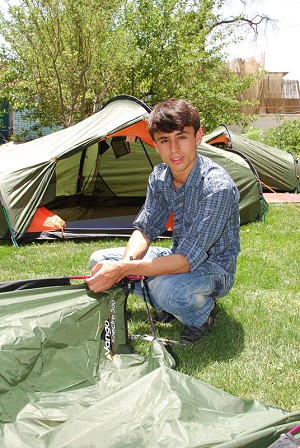
A recent survey showed that expeditions spent $118,000 in the local economy in 2010, an amount that is already changing lives. However due to a lack of investment and skills the local people are not capturing as much of the expedition dollars as they could do.
For this reason the Linda Norgrove Foundation have provided some tents and other trekking equipment to Adab Shah, a young man from the area who speaks excellent English and has worked as a guide. This is a micro finance grant with a difference because rather than paying it back, he'll pay it forward. Adab will use the income that is generated from the hire of the equipment to run English language lessons for the Wakhi people in the winters. The lack of English speaking guides is one of the major limiting factors for the tourism sector with demand outstripping supply by at least five to one. Also the more Wakhi that can speak English the more they will have opportunities to sell goods and services to expeditions which will generate additional incomes.
The decision to provide a grant to a business start-up rather than an association or cooperative was taken after studying tourism development initiatives in the Wakhi areas of Pakistan.
One Wakhi man from Shimshal who had paid for his university education by working as a porter explained, 'If no one person owns the equipment, no one feels responsible for its maintenance. Also no one person feels responsible for driving the business. In Pakistan it was the businesses that succeeded where the cooperatives and associations failed.'
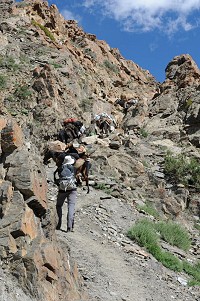
There have also been numerous studies on how aid and development can build dependency and there is an increasing recognition that local enterprise, not charity is the route to sustainable development.
'It is important that we can help ourselves through business rather than being helped by charity,' said Adab Shah. 'If people get used to being given things we will learn not to work. If we work and see results then we will work harder and make our lives better.'
We (David and Angharad James) of local social enterprise Mountain Unity believe the Wakhan has the potential to be one of the few sustainable good news stories from Afghanistan as the international community begin to withdraw. We reckon with the right support and a bit of luck tourism could be worth $1 million a year in the Wakhan by 2013. That could put the Wakhan on course for being one of the few districts in Afghanistan that could achieve the Millennium Development Goals.
However ink spots of peace like the Wakhan just aren't getting enough support; all the money is going to the violent areas which is creating a perverse incentive to blow things up. We'd really like to see some money spent on helping to keep the Wakhan safe because the counter insurgency effort in the south is making the north less secure. There is a concern about the increasing insurgency in the neighbouring province of Nuristan. It would be a travesty and a tragedy if the Wakhan which was never taken by the Taliban when they controlled Afghanistan started to become unsafe. It is hoped that the Wakhan will continue to be spared the violence that has increasingly blighted many other parts of the country. As the international military prepare to withdraw it could be that the Wakhan could become one of the few areas that can remain peaceful and grow prosperous without large scale international intervention.
See here for more information about the Linda Norgrove Foundation.
For more about organising expeditions in the Wakhan visit the Climb Afganistan site. Anyone planning on visiting the Wakhan should be aware that areas of Nuristan and Badakhshan have become less stable, and you should take responsibility for your own security planning.
About Mountain Unity
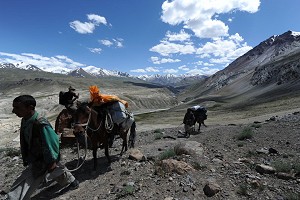
Mountain Unity is a social enterprise founded in 2009 by David James and his wife Angharad James to provide jobs and hope to some of the porest people in the world. Their rural economic development program in Afghanistan's most remote district, the Wakhan Corridor, has provided some of the local people with an opportunity to earn a wage for the first time. This gives them the ability to improve the welfare of their family and will give them money for more food over the approaching harsh winter months.
In the Wakhan Corridor the inhabitants are subsistence farmers, the province suffers the world's highest recorded maternal mortality rate and one in three children die before the age of five. Extreme poverty is a major factor in both of these shocking statistics. The Wakhan Corridor used to be part of the famous silk route but now the borders with China and Pakistan are closed and the economic opportunities have ended. Studies by a number of development organisations have shown that tourism presents one of the few, if not the only, viable opportunity the Wakhan has for sustainable development.
In 2009 Mountain Unity began marketing the Wakhan Corridor specifically to the mountaineering community because they understand the realities of travelling in remote underdeveloped expeditionary environments and can plan and act appropriately.
By 2010 they had delivered over a 100% increase in the number of visitors and more than 400% increase in the number of mountaineering expeditions injecting more the $50,000 directly into the local economy. In 2010 demand for trained guides outstripped supply for the entire season for the first time ever giving a new cadre of young Afghans the opportunity to train for a career that will transform their lives. For more see here.

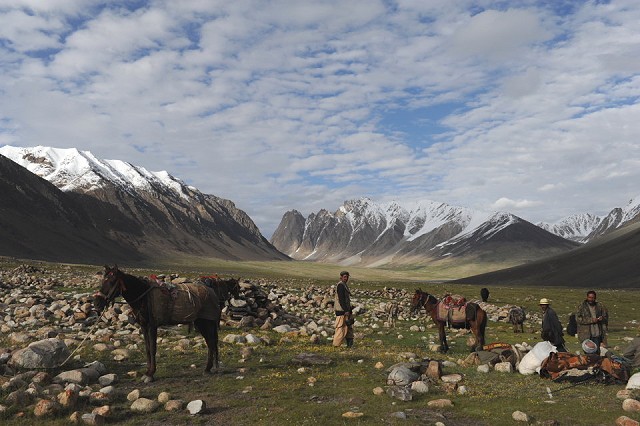
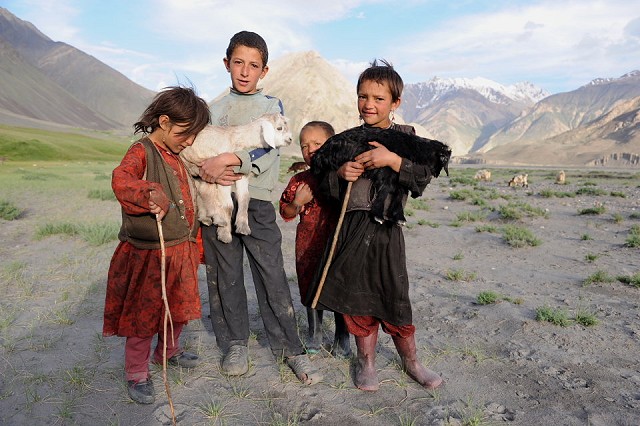

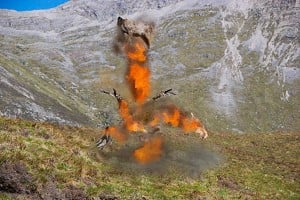
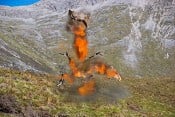
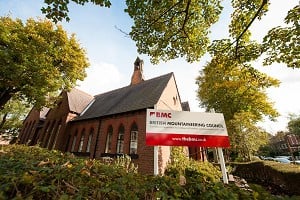
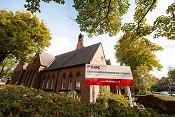


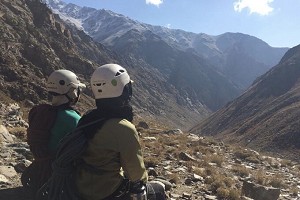
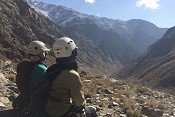
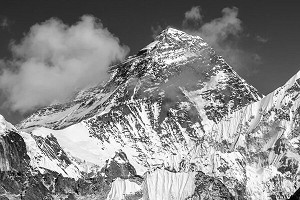

Comments